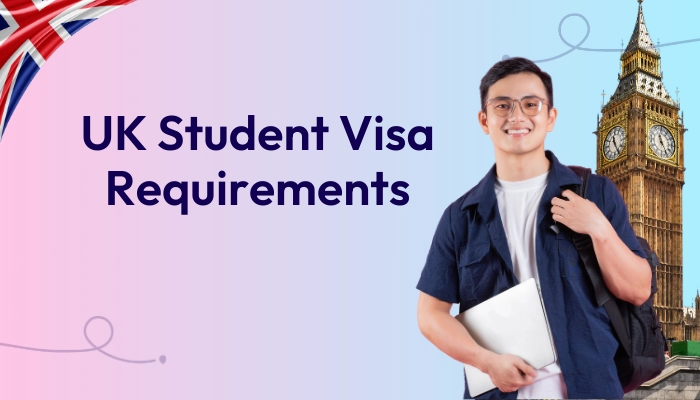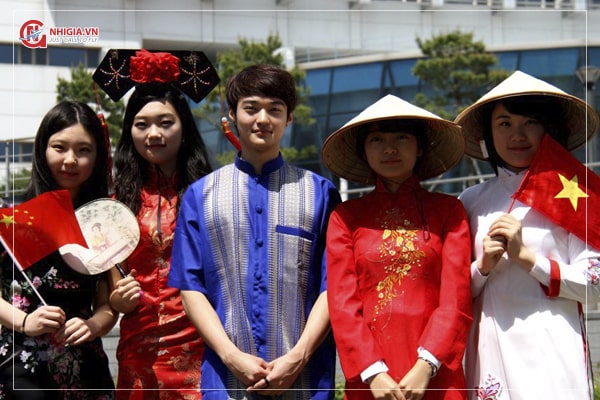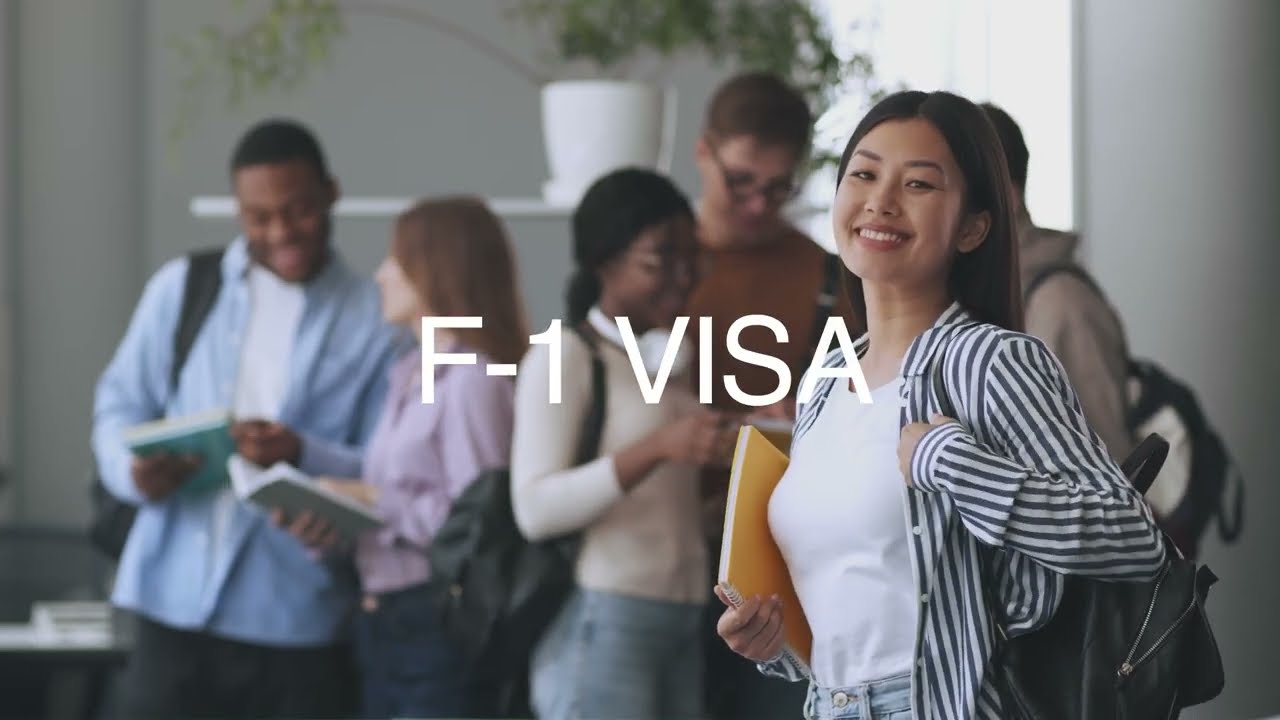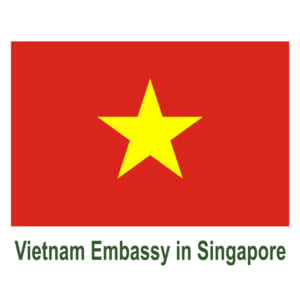
🎓 Vietnam Student Visa Application: Complete Step-by-Step Guide
Pursuing higher education in a foreign country can be an enriching experience, but it also requires careful planning and preparation, especially when it comes to obtaining the necessary visa. Vietnam, with its rich cultural heritage and growing academic opportunities, has become an attractive destination for international students. This comprehensive guide aims to demystify the Vietnam Student Visa process, providing a step-by-step breakdown of the requirements, application procedures, and key considerations.
Introduction

Understanding the Vietnam Student Visa Process
Embarking on an educational journey in Vietnam requires obtaining the appropriate student visa, a crucial step that facilitates your stay and ensures compliance with the country’s immigration laws. The Vietnam student visa process involves several stages, including gathering the necessary documents, submitting the application, and fulfilling specific eligibility criteria. By understanding the process thoroughly, you can navigate it smoothly and embark on your academic pursuits without unnecessary complications.
Benefits of Studying in Vietnam

Quality Education Opportunities
Vietnam has witnessed a remarkable surge in its higher education sector, with a growing network of universities and colleges offering diverse programs across various disciplines. Many of these institutions adhere to international academic standards and collaborate with renowned foreign universities, ensuring a high-quality education that is globally recognized. By pursuing your studies in Vietnam, you gain access to a range of academic opportunities that can enhance your knowledge and skills.
Affordable Tuition Fees
One of the significant advantages of studying in Vietnam is the relatively affordable tuition fees compared to many other developed countries. This cost-effectiveness makes Vietnam an attractive option for students seeking to minimize their financial burden while still receiving a quality education. By reducing the financial strain, students can focus more on their academic pursuits and personal growth.
Cultural Experience
Vietnam’s rich cultural heritage provides an unparalleled opportunity for immersive learning experiences. As an international student, you can delve into the country’s diverse traditions, customs, and cuisine, expanding your horizons and fostering a deeper understanding of Southeast Asia. This cultural exposure not only enriches your educational journey but also equips you with valuable cross-cultural competencies that are highly valued in today’s globalized world.
Types of Student Visas in Vietnam

Short-term Student Visa
For short-term academic programs or courses lasting less than three months, Vietnam offers a short-term student visa. This visa type is suitable for those attending language schools, vocational training programs, or short-term academic exchanges. The application process for a short-term student visa is typically more streamlined, requiring fewer documents and a shorter processing time.
Long-term Student Visa
If you plan to pursue a degree program, such as a bachelor’s, master’s, or doctoral degree, or attend a long-term course spanning more than three months, you will need to apply for a long-term student visa. This visa type allows you to stay in Vietnam for the duration of your studies and may require additional documentation and more stringent eligibility criteria.
Eligibility Requirements for a Vietnam Student Visa

To successfully obtain a Vietnam student visa, you must meet certain eligibility requirements. These may vary depending on the type of visa you are applying for and the specific regulations in place at the time of your application.
Acceptance Letter from a Recognized Educational Institution
One of the primary requirements for a Vietnam student visa is an acceptance letter or enrollment confirmation from a recognized educational institution in the country. This letter serves as proof that you have been admitted to a legitimate academic program and is a crucial component of your visa application.
Proof of Financial Means to Support Studies
International students are typically required to demonstrate that they have sufficient financial resources to cover tuition fees, living expenses, and other associated costs during their stay in Vietnam. This can be fulfilled by providing bank statements, sponsorship letters, or other relevant financial documents.
Health Insurance Coverage
Many countries, including Vietnam, require international students to have adequate health insurance coverage for the duration of their studies. This ensures that you have access to medical care and support in case of any health-related emergencies or concerns during your stay in the country.
Application Process for a Vietnam Student Visa
Gather Required Documents
The first step in the application process is to gather all the required documents. These typically include:
- Completed visa application form
- Valid passport with at least six months of remaining validity
- Acceptance letter from the educational institution
- Proof of financial means (e.g., bank statements, sponsorship letters)
- Health insurance documentation
- Passport-sized photographs
- Any additional documents requested by the Vietnamese embassy or consulate
It is crucial to carefully review the specific requirements and ensure that all documents are properly prepared and translated (if necessary) before submitting your application.
Submit Application to the Nearest Vietnamese Embassy or Consulate
Once you have assembled all the necessary documents, you will need to submit your Vietnam student visa application to the nearest Vietnamese embassy or consulate. This can typically be done in person, by mail, or through an authorized visa processing agency, depending on the specific requirements and procedures in your home country.
Attend Visa Interview if Necessary
In some cases, the Vietnamese embassy or consulate may require you to attend an in-person interview as part of the visa application process. This interview allows the visa officer to verify the information provided in your application and assess your intentions for studying in Vietnam. It is essential to be well-prepared for the interview, have a clear understanding of your academic goals, and be able to articulate your reasons for choosing Vietnam as your study destination.
Processing Time for a Vietnam Student Visa
Factors Affecting the Processing Time
The processing time for a Vietnam student visa can vary depending on several factors, including:
- The specific visa type you are applying for (short-term or long-term)
- The volume of applications received by the Vietnamese embassy or consulate
- The completeness and accuracy of your application documents
- Any additional verification or background checks required by the authorities
Typically, the processing time for a Vietnam student visa ranges from a few weeks to several months. It is advisable to apply for your visa well in advance to ensure that you receive it before your intended start date for your academic program.
Expedited Processing Options
In some cases, expedited processing options may be available for an additional fee. These options can be particularly useful if you need to obtain your Vietnam student visa in a shorter timeframe. However, it is essential to inquire about the availability and cost of expedited processing with the Vietnamese embassy or consulate before submitting your application.
Cost of a Vietnam Student Visa
Visa Application Fee
When applying for a Vietnam student visa, you will be required to pay a visa application fee. The exact amount of this fee may vary depending on your country of origin, the type of visa you are applying for, and any additional services or expedited processing options you may choose.
Additional Costs Such as Health Insurance
In addition to the visa application fee, you may also need to factor in the cost of obtaining adequate health insurance coverage, as required by Vietnamese authorities. It is important to research and compare various health insurance options to find a plan that meets your needs and budget.
Maintaining Student Visa Compliance in Vietnam
Once you have successfully obtained your Vietnam student visa and arrived in the country, it is crucial to maintain compliance with the visa regulations throughout your stay.
Attendance Requirements
As an international student in Vietnam, you will be expected to maintain regular attendance and satisfactory academic performance at your educational institution. Failure to meet these requirements may result in visa violations or potential revocation of your student visa.
Renewal Procedures
Depending on the duration of your academic program, you may need to renew your Vietnam student visa periodically. It is essential to familiarize yourself with the renewal procedures and deadlines to ensure that you maintain legal status in the country.
Working Opportunities for International Students in Vietnam
Part-time Work Regulations
While studying in Vietnam, international students may have the opportunity to engage in part-time employment to supplement their income or gain practical experience. However, it is crucial to understand and comply with the specific regulations governing part-time work for international students in Vietnam.
These regulations may include restrictions on the number of hours you can work per week, the types of jobs you are permitted to take, and the necessary approvals or permits required from both your educational institution and the Vietnamese authorities.
Internship Opportunities
In addition to part-time employment, many international students in Vietnam pursue internship opportunities to gain practical experience in their field of study. These internships can be valuable for building professional networks, enhancing your resume, and developing relevant skills for future employment.
When considering internship opportunities, it is important to ensure that the internship aligns with your academic program and meets any visa requirements or restrictions related to work experiences for international students.
Extending a Vietnam Student Visa
Reasons for Extension
There may be situations where you need to extend your Vietnam student visa beyond its initial validity period. Common reasons for seeking an extension include:
- Continuing your studies due to program extensions or delays
- Pursuing additional academic opportunities, such as a higher degree or research project
- Personal or family circumstances that require a longer stay in Vietnam
Extension Application Process
To extend your Vietnam student visa, you will need to follow the specific procedures outlined by the Vietnamese immigration authorities. This typically involves submitting an extension application, along with supporting documents such as an updated acceptance letter from your educational institution, proof of financial means, and anyrequired health insurance coverage.
It is essential to initiate the extension process well before your current visa expires to avoid any potential issues or disruptions to your stay in Vietnam. Be sure to carefully follow all instructions provided by the authorities and seek assistance from your educational institution’s international student office if needed.
Post-Graduation Options for International Students in Vietnam
Upon completing your studies in Vietnam, you may explore various post-graduation options to further your career prospects and potentially continue your stay in the country.
Job Search Regulations
As an international student, you are permitted to search for employment opportunities in Vietnam upon graduation. However, it is crucial to familiarize yourself with the specific regulations and requirements for finding a job as a foreign national.
Some key considerations include obtaining necessary work permits or visas, complying with labor laws, and ensuring that your prospective employer meets any sponsorship or hiring criteria for international workers.
Work Visa Application Process
If you secure a job offer in Vietnam after completing your studies, you will likely need to apply for a work visa or permit to legally engage in employment activities. The application process for a work visa may involve submitting relevant documents, obtaining medical clearances, and meeting any financial or sponsorship requirements set forth by the Vietnamese authorities.
Be sure to work closely with your prospective employer and seek guidance from immigration experts to navigate the work visa application process smoothly and efficiently.
Notes
To ensure a successful and hassle-free experience with your Vietnam student visa, consider the following notes and recommendations:
- Stay Updated on Visa Regulations and Requirements: Regularly review and stay informed about any updates or changes to visa regulations in Vietnam to avoid any misunderstandings or penalties.
- Seek Assistance from the Educational Institution’s International Student Office: Your educational institution’s international student office can provide valuable guidance and support throughout your visa application process, renewal procedures, and other related matters. Do not hesitate to reach out to them for assistance.
Mistakes to Avoid
When applying for and managing your Vietnam student visa, be mindful of these common mistakes to prevent unnecessary complications or visa violations:
- Providing Incomplete or Inaccurate Information on the Visa Application: Ensure that all information submitted on your visa application is accurate, complete, and consistent with supporting documents to avoid delays or rejections.
- Overstaying the Visa Validity Period: It is crucial to adhere to the specified validity period of your student visa and initiate extension procedures in a timely manner if needed. Overstaying your visa can lead to fines, deportation, or future entry restrictions.
Frequently Asked Questions
Can I Work While Studying in Vietnam?
Yes, as an international student in Vietnam, you may have the opportunity to work part-time under specific regulations and restrictions. Be sure to comply with the guidelines set forth by Vietnamese authorities and your educational institution regarding part-time employment.
How Long Does It Take to Process a Vietnam Student Visa Application?
The processing time for a Vietnam student visa can vary based on several factors, including the specific visa type, the volume of applications, and the completeness of your documentation. It is advisable to apply well in advance to account for any potential delays and ensure a smooth visa issuance process.
Conclusion
A Vietnam student visa (Visa type DH) is required for international students who plan to study or take a training course at a Vietnamese university, language center, or institution.
📝 Step 1: Receive an Acceptance Letter from a Vietnamese Institution
Before you apply for a visa, you must:
- Be accepted by a licensed educational institution in Vietnam.
- Obtain an official Letter of Admission or Invitation from the school.
This is a mandatory requirement for the student visa process.
📂 Step 2: Prepare Required Documents
To apply for a student visa, gather the following:
✅ A valid passport (with at least 6 months of validity and 2 blank pages)
✅ 01-02 recent passport-sized photos (4x6cm, white background)
✅ Letter of Admission/Invitation from a Vietnamese educational institution
✅ Completed visa application form (form NA1)
✅ Temporary residence address in Vietnam (if available)
✅ Visa sponsorship documents (from the institution)
✅ Proof of funds (may be requested)
🛫 Step 3: Apply for the Visa
You have two main options to apply for a Vietnam student visa:
Option A: Apply at the Vietnamese Embassy or Consulate
- Visit the Vietnamese Embassy/Consulate in your country
- Submit your documents and pay the visa fee (varies by location)
- Processing time: 5–7 working days (faster service may be available)
Option B: Apply through VisaOnlineVietnam.com (Visa On Arrival support)
- Ideal if you’re entering Vietnam by air
- Apply online to get a pre-approval letter for a student visa
- Receive the letter by email
- Upon arrival at Vietnam airport, present your documents and get the visa stamp
📌 Visit: https://visaonlinevietnam.com
✉️ Email: [email protected]
📞 WhatsApp: (+84) 968 18 77 18
📞 USA Hotline: +1(972)-666-0676
⏳ Step 4: Get Your Visa and Enter Vietnam
- If using the embassy route, your visa will be stamped in your passport before departure.
- If using Visa on Arrival, you’ll receive your visa stamp at the airport (Tan Son Nhat, Noi Bai, Da Nang, etc.)
🏡 Step 5: Register Temporary Residence
Once in Vietnam, you must:
- Register your residence at your local ward’s police station or through your school within 7 days of arrival
- This is necessary for visa extension or conversion to a long-term TRC (Temporary Residence Card) later.
🔄 Visa Extension or TRC
- A student visa is typically valid for 3–6 months, depending on the school’s support.
- You can apply for a visa extension or convert it into a Temporary Residence Card (TRC) for long-term study.
🎯 Quick Tips
✅ Apply 1–2 months before your intended travel
✅ Keep multiple copies of your documents
✅ Check the visa validity and entry dates carefully
✅ Keep your school contact for any necessary extensions
Need help? Contact VisaOnlineVietnam.com – we handle student visa applications quickly and professionally, ensuring a smooth transition to your study journey in Vietnam. 🇻🇳


